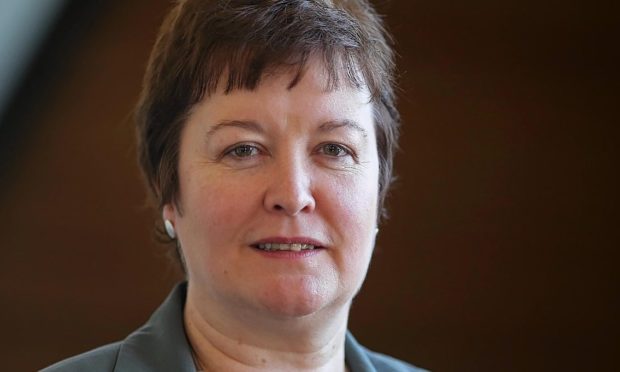Shock new figures have revealed nearly 100 people needlessly languishing in Highland hospitals died before they could be released.
Official bed blocking statistics show that dozens of patients clinically ready to leave wards were left stranded because of a care crisis in the north.
Labour MSP Rhoda Grant said it was wrong people were not being allowed to spend their final days with family and friends and urged Health Secretary Shona Robison to order an urgent review of the reasons for delayed discharge deaths.
And Debbie Michie, of Nethy Bridge, who was forced to stay in hospital in Grantown for nearly a year because there were not enough carers to look after her at home, also called for the system to be overhauled.
The bed blocking figures show 33 people died in Highland hospitals in 2012-13 because of a shortage of care home places or care at home provision.
There were 47 cases in 2013-14, and 17 in the last three months.
The statistics revealed that 859 people ready to leave hospitals across Scotland died between 2012-14, including five in Shetland and four in Orkney.
But the true total is likely to be much higher, as NHS Grampian said it did not hold the information.
The Scottish Government insisted tackling delayed discharges was a “top priority” and has allocated £18million to health boards to help ease the problem.
A spokeswoman said NHS officials “must monitor” the outcomes for people stuck in hospitals and review cases involving patients deemed fit for discharge who died before being released.
Highlands and Islands MSP Ms Grant, who is shadow health minister, said: “The figures reveal that almost every health board in Scotland has had a patient die whilst designated as a delayed discharge.
“In the case of NHS Highland nearly 100 people have died whilst on delayed discharge lists since 2012, which many people will rightly be concerned by.
“Hospital is not the right place for palliative care, many people wish to die at home or in a homely setting rather than in a busy ward.
“It is wrong that those who are approaching the end of their lives are also stuck in hospital when they should be spending their remaining days in a setting that allows them to live their final days along with family and friends.”
A spokeswoman for NHS Highland said increasing year-on-year pressures, linked to the ageing population, meant the delivery of services had to be changed.
“This is an important reason why we have integrated health and social care and why we have a range of service redesigns underway,” she added.
“Alongside this we are increasing our ability to provide greater community services and working with partners, third parties and the independent sector.
“We are improving the way we provide care-at-home and working with the care inspectorate on care homes.”
The Scottish Government recently awarded NHS Highland £307,500 to tackle bed blocking.
“The funding will enable us to explore a number of alternatives to hospital care, where deemed appropriate, such as night sitting services and step up and step down beds in care homes,” said the health board spokeswoman.
“It will also enable us to strengthen community support, enabling people to return to a homely setting as soon as they are able to do so, especially over weekend and holiday periods.”
A government spokeswoman said the delayed discharge situation was improving.
As of October last year a total of 946 patients were delayed, with 321 staying in hospital for longer than four weeks.
This compares with 908 patients being delayed more than four weeks in October 2006 and 1,443 in October 2004.
The government spokeswoman said: “Addressing delayed discharges is a top priority.
“That means we must ensure effective co-ordination between the NHS and social care services so that these, often very frail, patients can either get home or into a homely setting as quickly as is possible.
“To help deliver this we’ve already legislated for the integration of health and social care from this April.
“We’re working in partnership with health boards and local authorities to achieve integration, and council leaders have recently agreed to focus on discharge within 72 hours of people being judged clinically ready to go home.”
